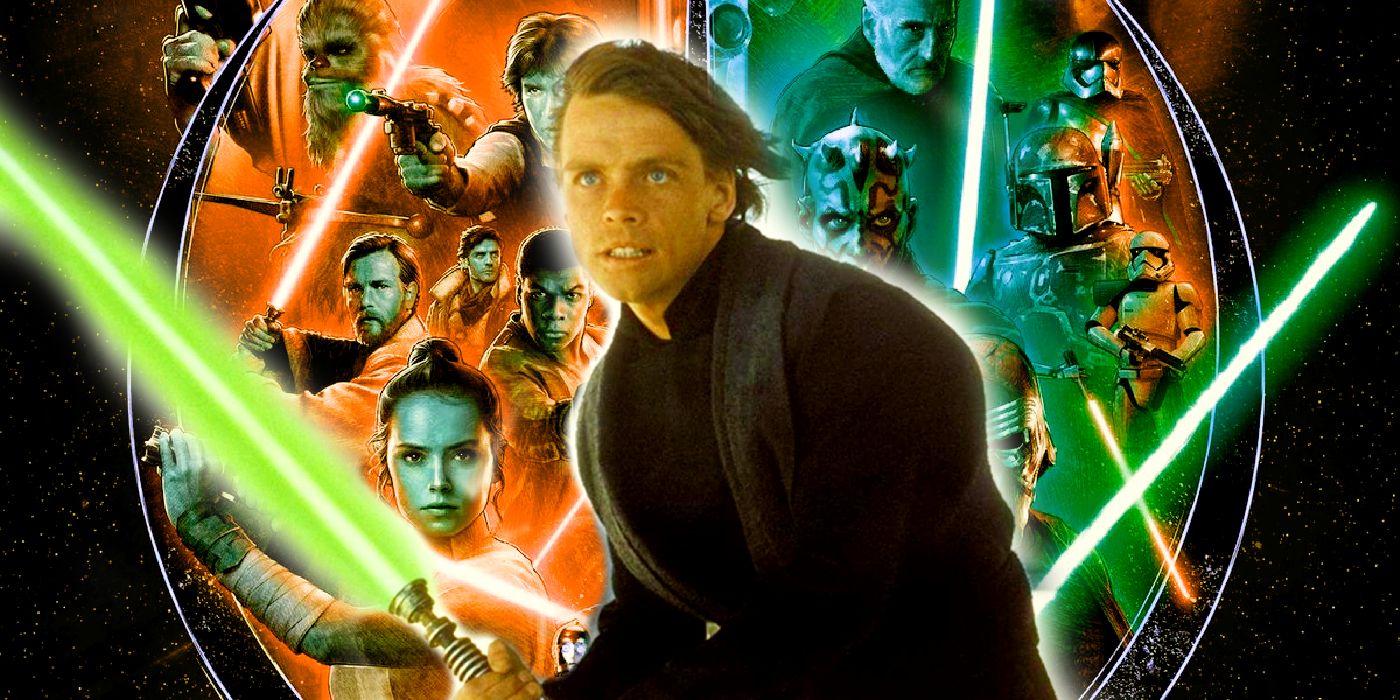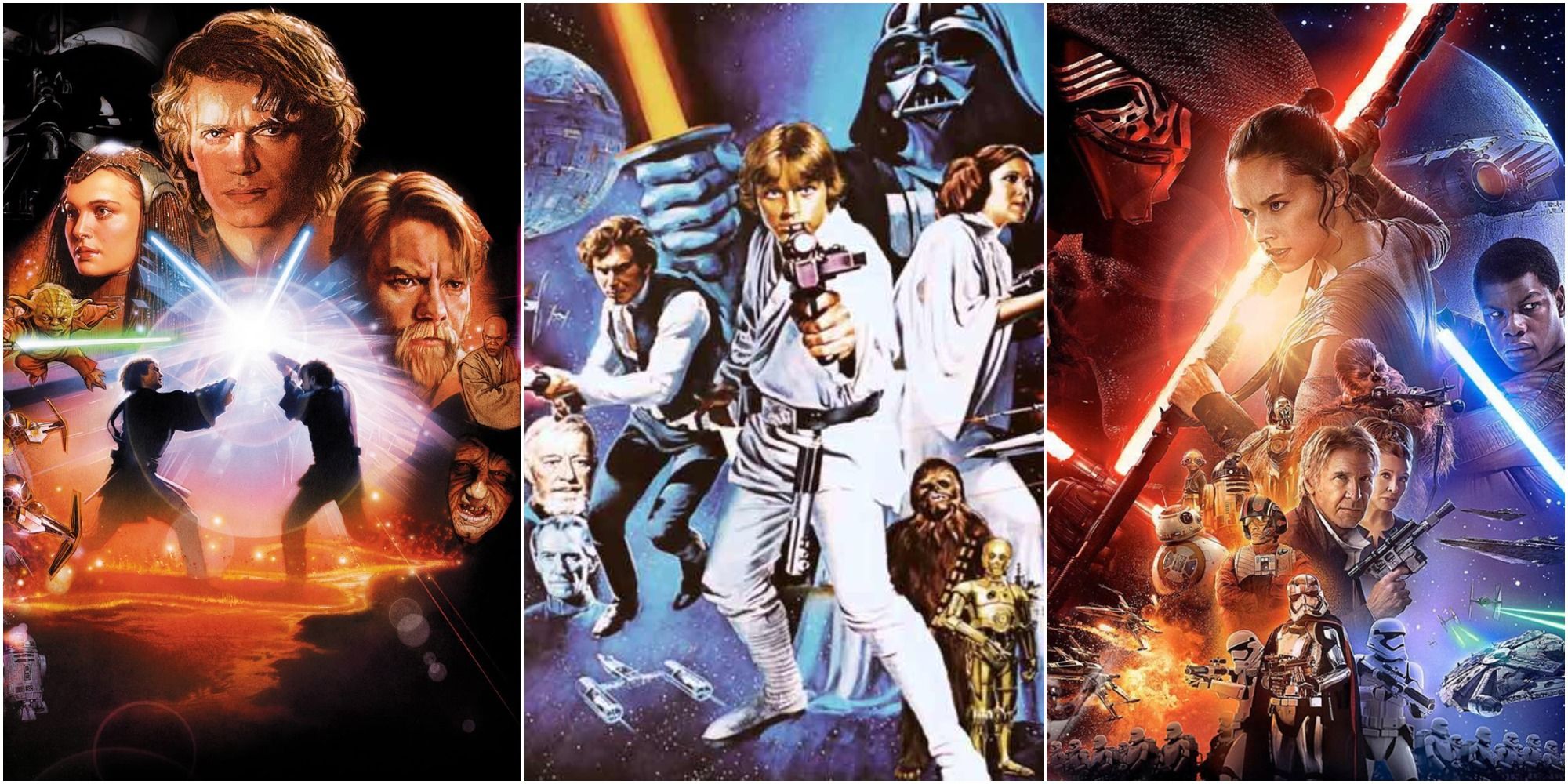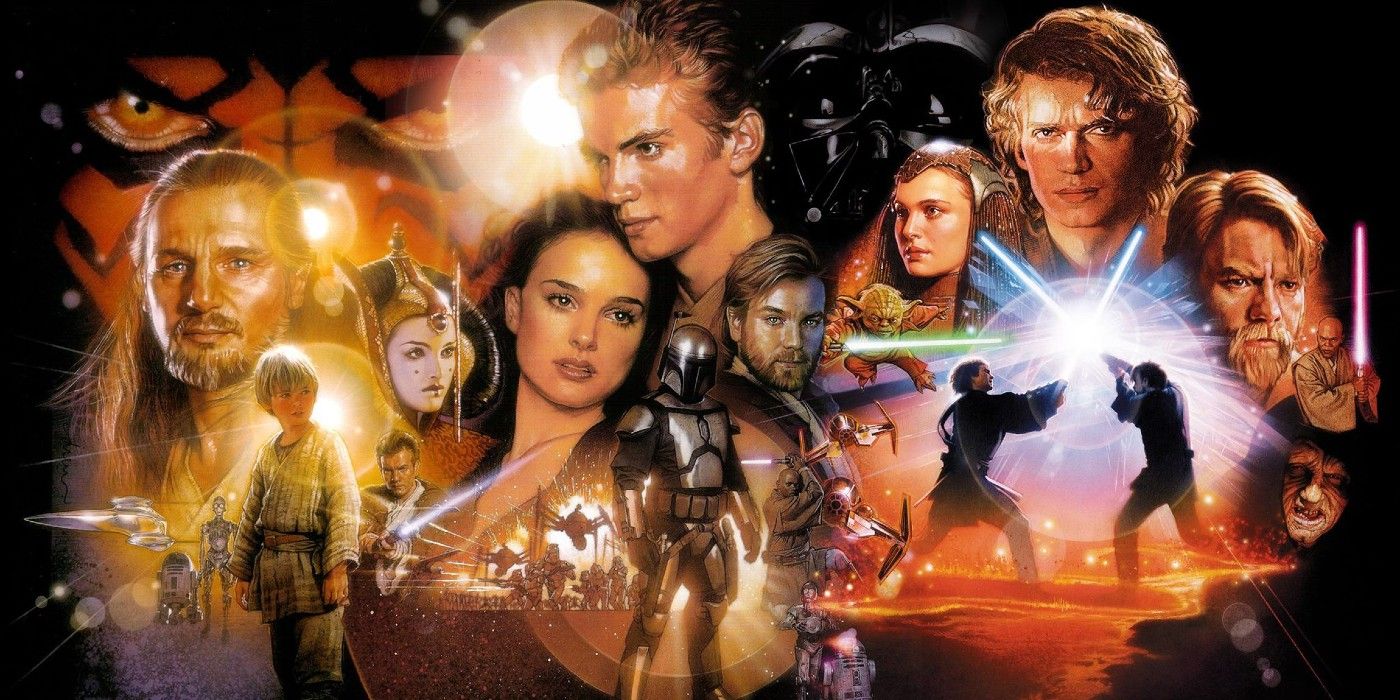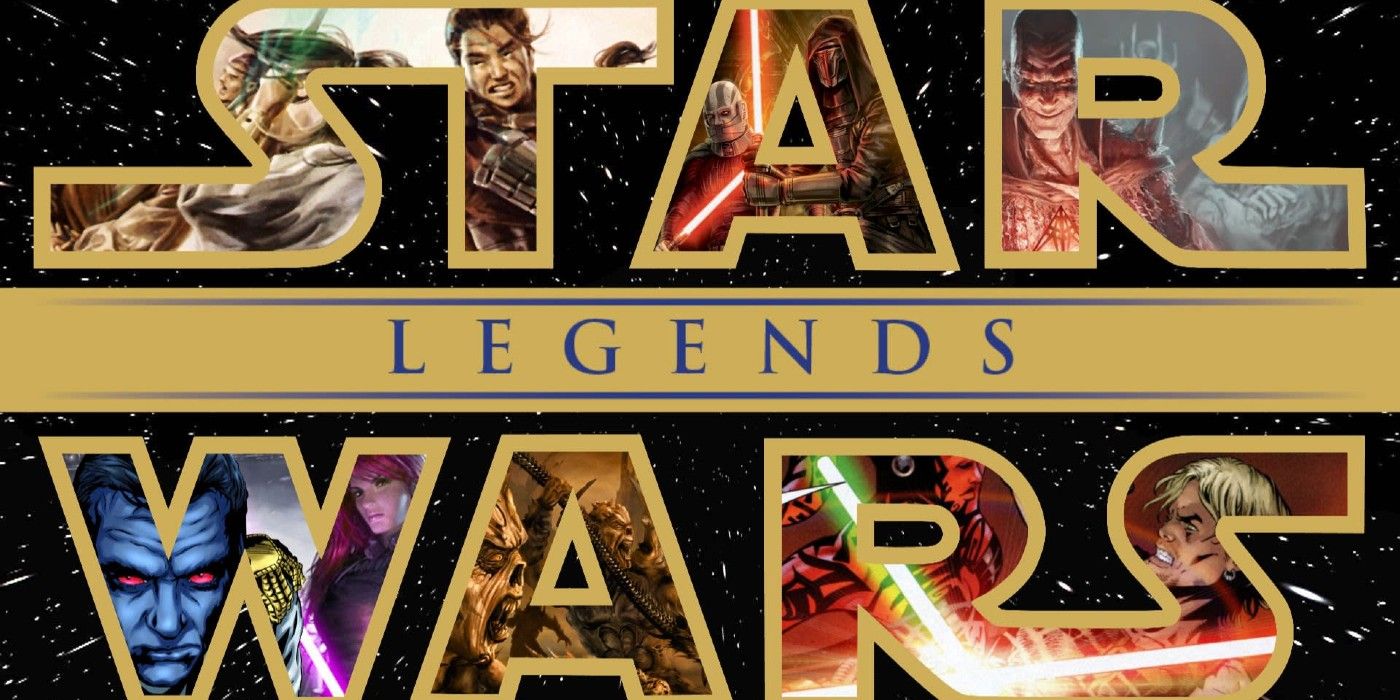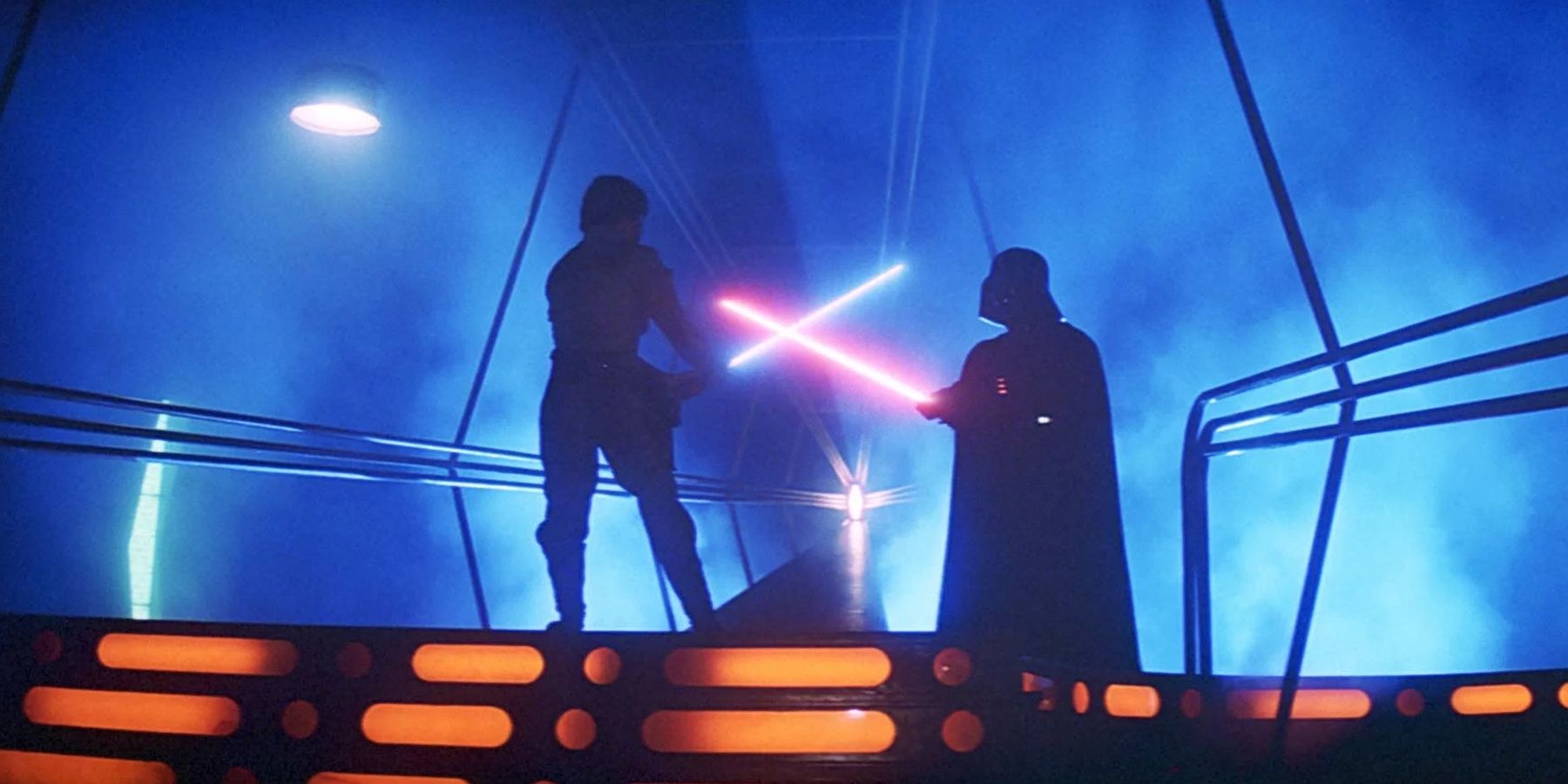The Skywalker Saga is the embodiment of Star Wars, but while Disney and Lucasfilm will no doubt continue the story in some capacity, there should be an extended break-in time before that happens. When Star Wars: Episode III - Revenge of the Sith ended in 2005, fans thought that would be the end of the Skywalker Saga cinematically. However, when Disney acquired Lucasfilm in 2012 for $4.05 billion, they wasted no time in continuing the story of the Skywalkers with a sequel trilogy. Given the continued financial success of the story, it's only right that the Skywalker saga continues into the future. However, despite its perceived popularity, there are several good reasons why it's necessary for any continuation to be delayed before the story develops.
Star Wars: The Force Awakens arrived in 2015 to much fanfare, and while derivative of Star Wars: Episode IV – A New Hope, was nevertheless well received by fans and critics alike. It did a great job of introducing new characters to the Skywalker Saga such as Rey (Daisy Ridley), Finn (John Boyega), and Kylo Ren (Adam Driver) while bringing back Star Wars legacy characters for a victory lap. The cracks started to show through with the release of Star Wars: The Last Jedi in 2017. While critically acclaimed, some fans balked at its narrative structure and characterizations. Shaken by the fan outcry, Disney tried to course-correct for Star Wars: The Rise of Skywalker, but in doing so undermined the overall sequel trilogy and left many fans underwhelmed as a result.
Notwithstanding the muted conclusion to the Skywalker Saga, Lucasfilm president Kathleen Kennedy has said that there are plans to continue telling stories with the sequel trilogy characters. "Certainly, those are not characters we’re going to forget," she said in an interview with Empire. "They will live on, and those are conversations that are going on with the creative team as well." Star Wars is too popular a brand with too significant a legacy for Disney to allow the Skywalker Saga to end indefinitely. However, whether Kennedy's comments foreshadow a direct continuation of the Skywalker Saga, or individual/stand-alone spin-off stories featuring some of the characters, remains to be seen. Whatever form that takes, however, the main story of the Skywalkers should be left to rest for now.
Waiting To Continue The Skywalker Saga Allows The Cast Time To Grow And Change
As George Lucas is fond of saying, the Star Wars movies should "rhyme" (i.e. mirror one another in terms of themes, plot points, character choices, or even lines of dialogue). This can also be applied to the length of time between trilogies within the Skywalker Saga, with each having a generational gap before carrying on the story. One of the benefits of having the Skywalker Saga play out over multiple generations (both in the movies and in real life) is that audiences get to see the characters and actors grow and change over time. Star Wars characters change between trilogies from young headstrong protagonists to the role of wise mentors and spiritual guides. Others are turned into myths or villains and some stay constant throughout, adding a nice contrast to those that do change. All of that though is difficult to achieve without the benefit of an extended break between trilogies.
Having those significant time jumps between trilogies also creates fresh canvases upon which to craft a story. Star Wars: The Rise of Skywalker showed that being a Skywalker is not restricted by being related by blood, as Rey adopts the moniker in the closing moments of the movie. This frees up future Skywalker installments to add new Skywalker characters without fear of convolution or logic leaps to find long-lost relatives. Additionally, from an interconnected universe perspective, having a significant gap also allows a lot of freedom for other media (television, comic books, novels, video games) to tell their own stories with these established characters without fear of narratively overlapping or contradicting the movies.
Nostalgia Is A Powerful Tool For Star Wars
Time has been (mainly) kind to the Star Wars prequel trilogy. Yes, the flaws of Episodes I-III are self-evident (the terrible dialogue, the wooden acting, the reliance on greenscreen, Jar Jar Binks). However, they actually did a good job of building out the galaxy of Star Wars. The world-building is impressive, from new planets and creatures to the overall Star Wars mythology (Midi-chlorians aside, of course). More importantly, the young generation that grew up with the prequel trilogy as their first experience of a galaxy far, far away holds it close to their hearts and sees past the issues that original trilogy fans have. Those young fans are now grown up and Star Wars is reaping the benefits from that nostalgia. Case in point, of all the upcoming Disney+ Star Wars shows, fans appear to be most anticipating the Obi-Wan Kenobi show, featuring the long-awaited rematch between Ewan McGregor and Hayden Christensen.
The prequel trilogy has gone from being a source of ridicule and lamentation to the foundation upon which future Star Wars projects are being built. Despite its vocal detractors, with enough time, the Star Wars sequel trilogy could also fit that role. Just as young fans grew up with the prequels, the sequel trilogy was an entire generation's introduction to Star Wars. In 20 years' time, those fans may well hold strong nostalgia for Episodes VII-IX. Conversely, trying to continue with a 4th Star Wars sequel (or even a new trilogy) in the next few years would carry all the baggage left in the wake by Episodes VII-IX, without the benefit of nostalgia.
The Star Wars Galaxy Is A Big Place, And There Are Other Stories To Tell
With all the inhabited worlds within the Star Wars galaxy, as well as thousands of years of established lore (be it canon or legends), it seems counter-intuitive to limit the cinematic storytelling possibilities to primarily one family. While the Skywalker Saga is Shakespearian in nature, having it as the sole focus is detrimental to Star Wars as a franchise. Allowing the Skywalker Saga to rest for an extended period of time before continuing gives the spotlight to other areas of the galaxy that would otherwise not get a look in. Freed of the dramatic constraints and tone of the primary series, Star Wars could expand and flourish like never before. Star Trek has shown time and again that its franchise doesn't need to limit itself to just Captain Kirk and the crew of the Enterprise. It can evolve and change, even switch genres. Star Wars is certainly attempting this with the slate of Disney+ Star Wars shows in development, but with time, location, and character possibilities practically limitless, so is the potential for other stories to be told cinematically.
The Skywalker Saga Needs To Feel Special Again
Lucasfilm has had had more luck expanding the Star Wars universe on the small screen than it has cinematically. While Rogue One: A Star Wars Story was a success, its behind-the-scenes troubles are well documented. Solo: A Star Wars Story meanwhile fared worse and (unjustifiably) put an end to Star Wars spin-off movies. Disney has admitted that in trying to replicate the Marvel formula of multiple movies coming one after another, audience fatigue quickly kicked in. For almost 2 decades fans just had the original Star Wars trilogy to appreciate, and yet between 2015 and 2019, Disney released 5 Star Wars films. The Star Wars movies were feeling less special as more and more of them came along like buses. Having an extended break between Skywalker Saga trilogies would allow them to feel special again: a once-in-a-generation event. If the Skywalker Saga sits on the sidelines for 20 years, it becomes reverential again, and audiences will be excited to return to a galaxy far far away.

